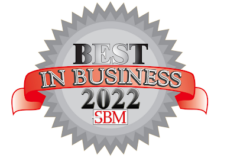This summer, HKA is offering our “Business Solution Series” for small businesses looking for opportunities to grow and streamline using technology that works for them. If there is a specific technology that you would like us to address, please don’t hesitate to reach out! We are available at (314) 993-4285 or Office@hkaglobal.com
When you’re starting a business and begin the process of looking into software or firms to help with your accounting needs, it can be a little overwhelming. There are many platforms out there at your disposal, and it’s a matter of choosing the right one for your needs. Some of the common platforms that we suggest to our clients are Xero and Quickbooks Online. Xero and Quickbooks Online both allow you to access your business data from anywhere and in real-time with mobile apps and web-based subscription plans. There is also Quickbooks Desktop, Oracle NetSuite, and many more. The size of your business, your needs, and budget will be the first thing you consider when choosing a software to use.
Xero and Quickbooks are two of the more commonly used accounting software. They have similar features, but the main difference is the language used. They are both cloud-based softwares that allows you to work on the go. They have features that will help you save time as well. They both allow you to create rules for transactions to allow for less manual entry and automate your monthly bookkeeping. Xero has technology that reads transactions from all their partners and clients that predicts what a transaction would be categorized to. Quickbooks Online will read all your previous transaction history to suggest future transactions to categorize.
Let’s look at Xero. Are you a small business that needs basic invoicing, reporting capabilities, and the opportunity to grow with potential use of integrations and applications? You will likely want to look at Xero. Xero offers exactly that with a low commitment as you can cancel within one month’s notice. We generally recommend the Growing plan, as you’ll have the ability to send invoices, enter bills, reconcile your bank transactions, integration with applications like Dext, Bill.com, or Xero’s Hubdoc, as well as the option to run payroll with Gusto. Xero is client-friendly, meaning that it doesn’t use accounting jargon and provides an accounting glossary along with 24/7 contact support. One aspect of Xero that we like is its original purpose as a cloud-based accounting platform. While Quickbooks Online is an iteration of Quickbooks Desktop retrofitted to work on the cloud, Xero was developed specifically for that space.
Quickbooks Online is the software that you have probably heard of and is very commonly used. Quickbooks Online offers multiple subscription plans with the ability to upgrade your plan based on your needs and usage. It will even provide you a usage summary to see if you’re close to needing an upgrade and let your software grow with the business. Quickbooks online has open integration with many applications, much like Xero does, along with the option to add payroll to your subscription. One of the main differences comes down to personal preference and language used. Unlike Xero, Quickbooks Online uses more accounting terms and lingo. Quickbooks also offers Quickbooks Desktop, which is installed on your computer and not a cloud based subscription. Unlike Quickbooks Online, Quickbooks Desktop does not have application integrations as it requires a cloud based subscription.
If you’re still unsure what accounting software would be the best for you, call us and let us help! We are always going to recommend that you go with a software that fits your needs and that you are most comfortable with, but happy to analyze both sides with you.


